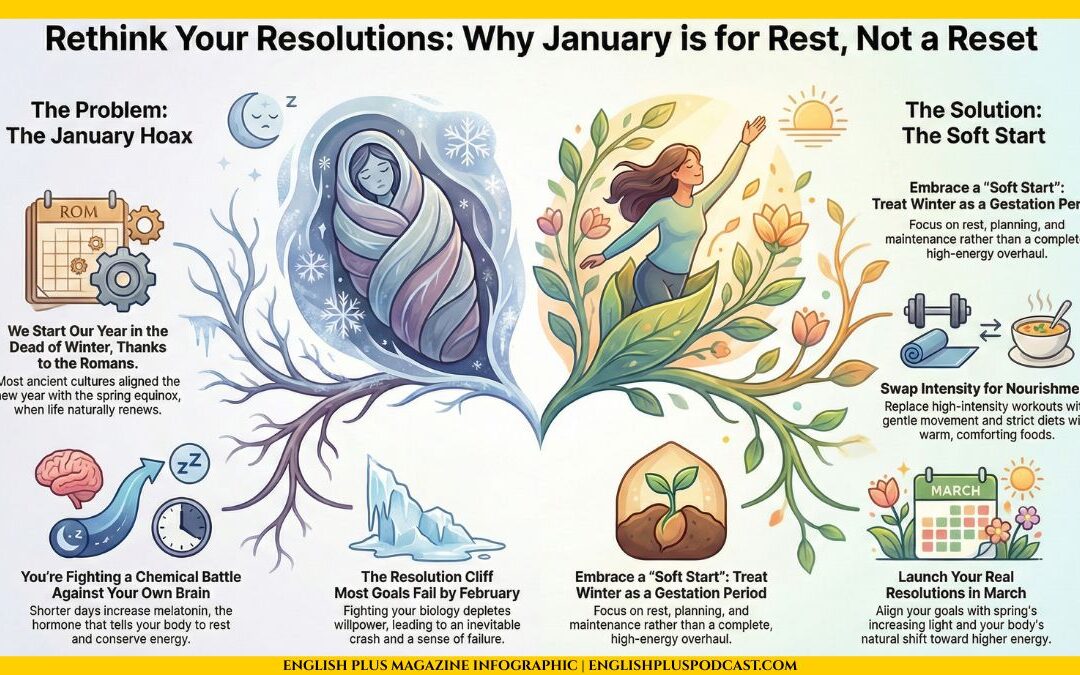Today, we’re examining the crucial link between research and policy-making. This is a topic that requires a formal, objective, and precise style of English—exactly the kind of language that impresses examiners in international tests.
You know our method by now. Begin by reading the 1000-word text below. Your aim is to understand how evidence is translated into action. Once you’re done, we will guide you through a detailed analysis of the key grammatical features—like nominalization and the formal passive voice—that define this style of writing. Let’s begin this exploration of how ideas shape our world.
From Evidence to Action: The Tortuous Path from Research to Policy
The relationship between scientific research and public policy is often idealized as a linear process: a researcher makes a discovery, the findings are published, and policymakers, in their pursuit of evidence-based governance, promptly translate this new knowledge into law. The reality, however, is a far more complex and often convoluted affair. The journey from a research paper to a tangible policy change is fraught with challenges, influenced not just by the quality of the evidence but also by political ideologies, economic constraints, and public opinion. An understanding of this process is fundamental to appreciating both the power and the limitations of research in shaping society.
Initially, for research even to be considered, its findings must be communicated effectively beyond the confines of academia. The dissemination of research findings through accessible summaries, policy briefs, and media engagement is a critical first step. A 300-page academic tome, however groundbreaking, is unlikely to be read by a busy legislator. Therefore, the transformation of dense, technical data into a clear and compelling narrative is an essential skill for researchers hoping to have an impact. The failure to undertake this translation work is a primary reason why much valuable research remains buried in obscure journals.
Once a piece of research has gained traction, it enters the highly politicized arena of policy debate. Here, evidence is but one of many competing inputs. A recommendation for a new public health intervention, for example, will be weighed against its potential cost, its ideological alignment with the ruling party, and the level of public support it is likely to command. It is a common frustration among scientists that their carefully conducted studies are sometimes ignored or “cherry-picked” by politicians to support a pre-existing agenda. For research to be influential, it is not enough for it to be scientifically sound; it must also be politically feasible.
Furthermore, the very nature of the scientific process can be at odds with the demands of the policy cycle. Science operates on principles of uncertainty, incremental progress, and constant revision. Policymakers, on the other hand, often require clear, definitive answers in a short timeframe. The call for “more research” can be perceived by the public and politicians as equivocation or an unwillingness to take a stand, even when it is the most intellectually honest position for a scientist to take. The establishment of independent advisory bodies, such as the UK’s Scientific Advisory Group for Emergencies (SAGE), is one attempt to bridge this gap, providing a mechanism for the structured delivery of scientific consensus to government.
When research does successfully inform policy, the results can be transformative. The implementation of smoking bans in public places, for instance, was a direct consequence of decades of accumulating evidence on the harms of secondhand smoke. This policy change would have been unimaginable without the persistent efforts of the research community to establish a causal link and communicate the risks to the public. Similarly, advancements in our understanding of early childhood development have led to increased investment in preschool education programs worldwide.
Ultimately, strengthening the link between research and policy requires effort from both sides. Researchers must become better communicators, willing to engage directly with the policy process. Simultaneously, a commitment from policymakers to the principle of evidence-based decision-making must be fostered and protected from short-term political pressures. They must create formal channels through which scientific advice can be heard and given due consideration. The development of robust, resilient, and effective public policy depends on this symbiotic relationship. While the path may be difficult, the pursuit of a society where decisions are informed by the best available evidence remains a profoundly worthy goal.
Grammar Analysis: Let’s Break It Down
The formal, objective tone of the text you just read is created by specific grammatical choices. Let’s analyze these features. Mastering them is key to producing high-quality academic and formal writing.
[ppp_patron_only level=5]
1. The Formal/Impersonal Passive Voice
“A recommendation for a new public health intervention… will be weighed against its potential cost…“
“The establishment of independent advisory bodies… is one attempt to bridge this gap…“
- What is it? This is the passive voice used to create an objective and impersonal tone. In the first sentence, we don’t know (or it’s not important) who will weigh the recommendation. The focus is on the process itself. The agent (the ‘doer’) is omitted.
- Why use it? This is the hallmark of formal, academic, and scientific writing. It shifts the focus from the people involved to the actions, processes, and ideas. It makes the writing sound more official and less like a personal opinion. Compare “We will weigh the recommendation” (personal, active) with “The recommendation will be weighed” (impersonal, passive).
- When to use it: Use it when the process is more important than the actor, or when the actor is unknown or obvious (e.g., policymakers, scientists).
2. Nominalization: Turning Verbs into Nouns
“The dissemination of research findings… is a critical first step.” (from the verb disseminate)
“…the transformation of dense, technical data… is an essential skill.” (from the verb transform)
“…a commitment from policymakers to the principle of evidence-based decision-making…” (from the verb commit and the verb decide)
- What is it? Nominalization is the process of turning a verb or an adjective into a noun. For example, to recommend (verb) becomes a recommendation (noun); to understand (verb) becomes an understanding (noun).
- Why use it? It allows you to create more compact and sophisticated sentences. It helps you talk about actions and processes as abstract concepts, which is central to formal discourse. The phrase “The dissemination of findings” is more concise and academic-sounding than “When researchers disseminate their findings…”. It packs a clause into a noun phrase.
- How to practice: When you learn a new verb, check if it has a common noun form (e.g., investigate -> investigation, analyze -> analysis, develop -> development). Try rewriting simple sentences using nominalization: “We need to understand this” becomes “An understanding of this is needed.”
3. Prepositional Phrases with Complex Nouns
“…in their pursuit of evidence-based governance…“
“The journey from a research paper to a tangible policy change is fraught with challenges…“
- What is it? This is about how prepositions (of, from, to, in, with) are used to connect the complex nouns created through nominalization and other means. The choice of preposition is crucial for meaning.
- Why is it important? In advanced writing, you’re not just connecting simple words; you’re connecting complex ideas. Correct prepositional use is what holds these sophisticated sentences together. Pursuit of, journey from…to, fraught with are all examples of collocations (words that naturally go together) that you need to master.
- Common Mistake: Using the wrong preposition. This is a very common error for learners. The only way to improve is through extensive reading and practice. Keep a notebook of these noun + preposition combinations when you encounter them.
4. Infinitives and Gerunds as Subjects and Objects
“The failure to undertake this translation work is a primary reason…“
“Strengthening the link between research and policy requires effort from both sides.“
- What are they? Here, verb forms are acting like nouns.
- In the first sentence, the infinitive phrase to undertake this translation work is modifying (giving more information about) the noun failure.
- In the second sentence, the gerund Strengthening (and its whole phrase) acts as the subject of the sentence.
- Why use them? Like nominalization, this is another way to create more formal and information-dense sentences. Starting a sentence with a gerund (-ing form) is a very effective way to make an action or process the central topic of your sentence.
Summing Up and Your Next Steps
In this final lesson, we’ve dissected the anatomy of formal, academic writing. We’ve seen how the impersonal passive voice creates objectivity, how nominalization makes writing concise and abstract, and how correct use of prepositions and verb forms as nouns holds complex sentences together.
These are perhaps the most challenging structures we’ve covered, but they are also the most rewarding to master. They are the key to unlocking the highest levels of formal written English. Your mission is clear: become a conscious writer. When you draft your next essay, ask yourself: Can I make this more objective by using the passive? Can I make this sentence more compact by using nominalization? Can I start a sentence with a gerund to make it more impactful?
Thank you for joining us on this grammatical journey. By continuously noticing, analyzing, and practicing these advanced structures, you are well on your way to achieving the fluency and sophistication needed to excel in your exams and beyond. Keep reading, keep writing, and keep aiming high!
[/ppp_patron_only]










0 Comments